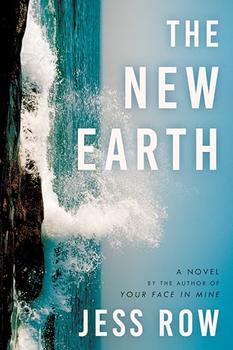Summary | Excerpt | Reviews | Beyond the Book | Readalikes | Genres & Themes | Author Bio

A Novel
by Jess Row
Elie Wiesel said, "The Holocaust killed Primo Levi forty years later."
In 2003 a Haaretz columnist wrote: "If the Holocaust created the state of Israel, then the Holocaust is responsible for all the deaths of Palestinians over the occupation, and by proxy, Bering Wilcox, too, a Jewish American, is a victim of the Holocaust who died defending other victims—"
That's all as may be, he says out loud, enjoying the looseness of the phrase on his tongue. A Davenport phrase, something Mother used to say. But the truth is: life is very long.
Primo Levi Day: the day of the perfect death. The golden ratio for a man. A swift removal from life, no announcement, no explanation. Elected and autonomous. An end that speaks for itself. He named the impulse in 2010, but when in his adult life, his post-Vermont life, has he not promised himself some version of it? In, say, 1987? 1989? 1993? To say nothing of the later and more obvious dates? But he had to reach this moment to be ready. Choosing to die, he's thinking, as if delivering a lecture, step by step down the sidewalk, amounts to a statement about the nature of time: time flows only in one direction, it's all chronology, in the end, chronology is order and necessity, the order of moments, no matter what, and there's a moment when one has collected oneself from all the disturbances, reassembled a shattered life, put one's affairs in order, faced the clock, and put a finger on a number. Chosen a day. Call it the beauty of the refusal, the beauty of saying no more. Naomi and I have decided to withdraw from the arena, he emailed the reporters in May 2003. He knows it by heart, every white-knuckled word. Not to continue the appeals, not to establish a foundation in Bering's name, though we've been asked to by generous friends, and not to grant any more interviews to the press. Because nothing we can do will change the events of March 13, and for the health of our family we need to mourn and recover in private—
And who's to say, he asks the air along Fifty-Sixth Street, facing west, grinning into the midday sun, that Levi never recovered, that he was not, in the end, perfectly composed? Nothing so extraordinary as life glimpsed through a closing window. He has an hour left, at most. Life palpates everywhere around him. A woman in a herringbone suit, shielding her eyes, digging in her purse for her sunglasses. A garbage truck pulls around the corner, huffing and clanking; a little girl cranes her neck around her stroller to watch. Perfect. Perfect. Perfect. The small consolations of the everyday, right up to the end.
His eyeballs flicker around the edges with blue fire.
Upward is where this goes. Away.
Dearest Marie, Heinrich von Kleist wrote to his sister in 1811, moments before he shot his lover Henriette Vogel and then himself, If you knew how death and life take turns to garland these last moments of my life with the flowers of heaven and of earth, surely you would be content.
His phone buzzes in his pocket; he should have known better than to leave so abruptly after lunch. "Sorry to bother you," Joni says. "But someone named June called? From your dry cleaners? You have clothes that have been ready to pick up for almost two weeks. Should I send a messenger?"
"To pick up my dry cleaning?"
"That's exactly what Joanne said you would say."
"I'll pick it up this afternoon. They can wait two more hours."
"Are you sure? Because I can just book it right now."
A stippling in his pulse. As if he's anxious about being found out.
"I have time. Tell Joanne people are abusing the messenger account."
"She told me to tell you to let her do her job and you do yours."
"Got it. Over and out."
* * *
I, I, I, he's thinking, on the way to the subway, ducking under the vast Moorish bulk of Carnegie Hall to get out of the glare, have lived enough moments, which is not to say wasted them; he refuses to put it that way. I have exhausted them. I have put the first-person singular at the beginning of enough sentences. He narrates his life, for the most part, in individual lines. Not paragraphs. The novel arranges them into paragraphs for ease of access, with added commentary. This is called free indirect discourse. Why not walk all the way home, as he used to do in warm weather, pretending it was exercise? Or take a car? It was the bane of his existence, back when he still used that phrase, having to walk three and a half long blocks to the 1 at Columbus Circle, in the snow, in the subzero winds. He refused to take a cab. Never. Not as a matter of habit. Twelve dollars each way, five days a week? He wouldn't have it. He hated his commute, could never reconcile himself to it, short and unremarkable as it was. Sensei used to say, Your problem is you do everything too fast, and he would say, I hate being in the middle of things. I'm impatient, so shoot me. I hate inefficiency. I hate feeling surrounded and nebulous. I hate repetition.
Excerpted from The New Earth by Jess Row. Copyright © 2023 by Jess Row. Excerpted by permission of Ecco. All rights reserved. No part of this excerpt may be reproduced or reprinted without permission in writing from the publisher.
Your guide toexceptional books
BookBrowse seeks out and recommends the best in contemporary fiction and nonfiction—books that not only engage and entertain but also deepen our understanding of ourselves and the world around us.